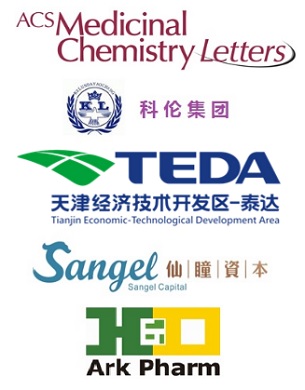国际新闻精选周四(2017年1月12日)
JP Morgan day two roundup – all talk, very little action
Day two of the JP Morgan conference contained lots more talk but very little action, on the deal front at least. Valeant's asset sales were the biggest transactions timed to hit the headlines, while Sanofi’s comments on a deal that did not happen, Actelion, essentially amounted to criticism of media reports at the time. Executives notably did not go so far as to deny that talks actually happened.【阅读全文】
National Cancer Institute and drug companies aim to speed up clinical trials
The National Cancer Institute launched an effort Wednesday to speed up clinical trials by getting researchers quicker access to the drugs they want to test. The NCI initiative creates a virtual “formulary” — a kind of clearinghouse — that initially will include 15 different medications donated by six manufacturers. The formulary will allow the institute to act as an intermediary between the drug companies and scientists at 69 NCI-designated cancer centers and to streamline the process by which researchers get the therapies.【阅读全文】
Medtech M&A regresses to the mean in 2016
When it comes to the consolidation of medtech companies 2016 is the new 2014. The two years saw the same number of M&A deals closed – 217 – and a very similar figure for their total value – $41.8bn last year, versus $40.8bn two years earlier. This has the effect of making 2015 stand out all the more starkly, its total looking truly extraordinary at nearly $130bn (see graph below). Several billion-dollar deals were closed last year, but all were relatively modestly priced: the largest was Canon’s purchase of Toshiba’s medtech division, at $6bn.【阅读全文】
EU nod for Novo’s new fast-acting insulin
European regulators have approved Novo Nordisk's fast acting insulin Fiasp for the treatment of diabetes in adults, as the bolus component of basal-bolus therapy in combination with basal insulin and for continuous subcutaneous insulin infusion via an insulin pump. Fiasp is an ultra-fast rapid-acting insulin that improves control of postprandial glucose excursions and has been developed for the treatment of people with both type I and type II diabetes.【阅读全文】
Sarepta jumps on J.P. Morgan update, gene therapy DMD deals
Sarepta saw a 21% bump in its share price on Tuesday after it announced a new, early-stage research deal that could help treat all Duchenne muscular dystrophy (DMD) patients, and told investors in San Francisco that its new and controversial med for the disease, Exondys 51 (eteplirsen), had already made $5.4 million after its fall approval. The research deals are with Nationwide Children’s Hospital and will see the pair work on their microdystrophin gene therapy program, as well as another form of gene therapy.【阅读全文】
Alnylam shrugs off revusiran setback as new lead heads for phase 3 readout
Just three months ago, gene-silencing specialist Alnylam was pummelled after deaths in a phase 3 clinical trial forced it to abandon its revusiran candidate for hereditary ATTR amyloidosis. Now, it is hoping to file its new lead candidate by the end of the year. Chief executive John Maraganore said at the J.P. Morgan Healthcare Conference that the company has moved on from that disappointment and is anticipating its first phase 3 data readout for new lead candidate patisiran—also for ATTR amyloidosis patients—in September.【阅读全文】
The Scripps Research Institute Signs Collaboration Agreement with Pfizer to Advance DNA-Encoded Library Technology
The Scripps Research Institute (TSRI), a leading non-profit biomedical research institute, today announced a research collaboration and license agreement with Pfizer Inc. (NYSE: PFE) to pioneer new DNA-encoded library (DEL) technology, including new synthetic chemistry for the creation of next-generation DELs, a potentially transformative technology for early stage drug discovery research.【阅读全文】
Merck KGaA, Darmstadt, Germany Licenses Four Oncology Research and Development Programs from Vertex
Vertex Pharmaceuticals Incorporated (Nasdaq: VRTX) today announced that it has entered into a licensing agreement with Merck KGaA, Darmstadt, Germany for the worldwide development and commercialization of four promising research and development programs that represent novel approaches to the treatment of cancer. As part of the agreement, Merck KGaA, Darmstadt, Germany will license two clinical-stage programs targeting DNA damage and repair, along with two additional novel pre-clinical programs. Vertex will receive an upfront payment of $230 million, in addition to royalties on future net sales. Merck KGaA, Darmstadt, Germany will assume full responsibility for the development and commercialization of all the programs.【阅读全文】
Merck leapfrogs rivals in lung cancer drug combination race
Merck & Co has pulled ahead of rivals in the race to combine immunotherapy with other drugs as a treatment for lung cancer, potentially giving it a major lift in the battle for the largest cancer market. U.S. regulators have agreed to a speedy review of Merck's application to combine its immune system-boosting drug Keytruda with chemotherapy as an initial therapy for advanced lung cancer, the U.S. drugmaker said.【阅读全文】
NICE supports use of asthma smartinhaler
The National Institute for Health and Care Excellence has published a Medtech Innovation Briefing recognising that Adherium's Smartinhaler technology is more effective in improving adherence to asthma medication than current NHS practice. Smartinhaler is a digital monitoring device attached to standard asthma inhalers, that provides users with medication reminders and also tracks inhaler usage.【阅读全文】
Blocking DNA-repairing protein could help beat glioblastoma
Glioblastoma can be difficult to treat because therapies typically only affect some tumor cells, while leaving others undisturbed. University of Leeds scientists may have found a workaround though: A protein in the brain that, when blocked, boosts the effectiveness of radiotherapy in destroying glioblastoma cells.【阅读全文】
Trump's Comments Are Big Pharma's Nightmare
The drug industry is just wrapping up what looked like an upbeat week here at the J.P. Morgan Healthcare Conference in San Francisco, where all of the healthcare industry's biggest executives come every year to court investors and negotiate deals. This is the where big mergers are conceived. But now every pharma and biotech executive has a lump in his throat (they're mostly men). Because of Donald Trump.【阅读全文】
美中药源原创文章,转载注明出处并添加超链接,商业用途需经书面授权。★更多深度解析访问《美中药源》~
★ 请关注《美中药源》微信公众号 ★



















 微信号:美中药源
微信号:美中药源